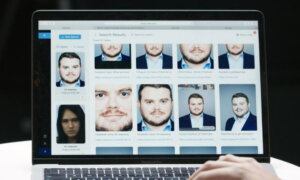The Microsoft-backed bill that campaigners called ‘endorsement of invasive surveillance’, introduced by Assemblyman Ed Chau, argued that it would have expanded facial recognition surveillance across the state.
The American Civil Liberties Union warned that, once in place, the bill will allow law enforcement agencies and other entities to self-regulate their use of the tech, leading to some breaches of privacy and basic human rights to intimacy. Among the concerns about the program, the ACLU stated that the bill didn’t properly address accuracy concerns, and tech companies can find ways around the system or circumvent the rules.
The ACLU was joined in the opposition by public health experts, technology scholars, and a range of civil rights groups. They all campaigned against the bill in particular, but their ultimate goal is a California without face surveillance.
“The bill would grant to an individual the right to confirm if a controller has enrolled an image or a facial template of that individual in a facial recognition service used in a physical premise open to the public, the right to correct or challenge a decision to enroll an image or a facial template of the individual in a facial recognition service used for a security or safety purpose in a physical premise open to the public, the right to have an image or a facial template of the individual deleted that has been enrolled in a facial recognition service used in a physical premise open to the public, subject to the security and safety purpose exception described above, and the right to withdraw, at any time, consent to enroll an image or a facial template of that individual in a facial recognition service used in a physical premise open to the public.”
AB-2261 Facial recognition technology. (2019-2020)
Facial recognition may lead to some dangerous roads. Discrimination of the individual, based on biometric data, can be a real issue and the fact that sooner or later everybody is going to access the tech is not encouraging. Chau claimed that the ‘endorsement of invasive surveillance’ bill would help health agencies use facial recognition to combat COVID-19. It can very well do that. But it can also turn into a tool of abuse.
“The bill would require, among other things, an agency using a facial recognition service to make decisions that produce legal effects concerning individuals or similarly significant effects concerning individuals, as specified, to ensure that those decisions are subject to meaningful human review and to conduct specified periodic training of all individuals who operate a facial recognition service or who process personal data obtained from the use of a facial recognition service. The bill would prohibit an agency from using a facial recognition service to engage in ongoing surveillance unless specified conditions are met relating to a law enforcement investigation of a serious criminal offense, as defined.”
AB-2261 Facial recognition technology. (2019-2020)
Case and point, following the prolonged campaign, the legislators blocked the bill. California‘s legislators heeded the warning, but this is not the first nor the last bill of its kind, and other states will try to implement it in some form. It might come back to California in some other shape in the future, and we hope that lawmakers learn something form the rejection of this bill.
Follow TechTheLead on Google News to get the news first.

























